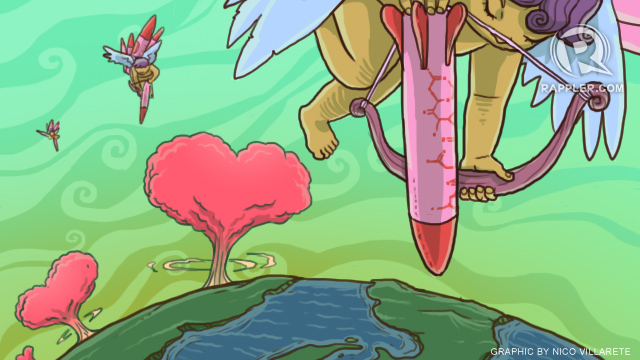SUMMARY
This is AI generated summarization, which may have errors. For context, always refer to the full article.
 When I mentioned to my friend Gilda Cordero-Fernando that it is crucial that we find a way to save the brains of kids in orphanages because a study has found that their brains seem to shrink from lack of consistent one-on-one human contact, she was quick to give an imperative: get volunteer grandmothers to regularly hug those kids!
When I mentioned to my friend Gilda Cordero-Fernando that it is crucial that we find a way to save the brains of kids in orphanages because a study has found that their brains seem to shrink from lack of consistent one-on-one human contact, she was quick to give an imperative: get volunteer grandmothers to regularly hug those kids!
I thought that was a brilliant idea not just to recruit grandmothers but women in general. Women are naturally protective of their children and as an extension, could empathize with orphans. In terms of our biology, there is a molecule known to produce these overwhelming feelings of affection not just in women but also in men.
Mothers who just gave birth are awash with oxytocin, the molecule which helps ease childbirth, strengthen the bond between mother and the newborn child, and facilitates the production of breast milk. Oxytocin also acts as a “superglue” in both males and females, released in love-making, or when couples in love simply gaze at each other or hold hands and may even help in making love last; it is also at work on you and your dog when you are bonding. It is also known to foster “trust” among group members as against “outsiders.”
Oxytocin is naturally released by the brain’s pituitary gland but for people with autism who do not have the normal range of social reach, a study has also found that a spray of oxytocin can help activate the social regions of their brains.
Knowing how crucial it is to our emotional and social lives, studies have homed in on this “love” hormone and recently, they found that it is able to do so much more.
In a study recently published in Nature Communication, scientists have also found that oxytocin can help repair muscle injury. They tested this with mice and they found that the injured older mice who got a dose of oxytocin recovered close to the rate that younger mice did. However, when younger mice were given the dose, it did not significantly affect the healing of their muscles.
The scientists were very encouraged of these results since oxytocin is an approved drug (Pitocin) by the FDA. They said that so far, unlike other “regenerative drugs”, oxytocin has not been shown to encourage uncontrolled cell growth (cancer) or disrupt the immune system. This makes it a great candidate for a drug that could help repair age-related diseases.
I think no molecule is as closely and strongly linked to “love” as oxytocin is. Maybe we should start manufacturing “O” bombs and release them generously in strife-ridden areas here and abroad where men (yes, mostly men) are busy making war come alive.
If you think I am the only one being ridiculous, you should know that seven years ago, the IgNobel award for Peace went to the Wright Laboratory for submitting an idea involving what was later dubbed in the news as the “Gay bomb” . It involved a plan, among many, to distract enemy lines by releasing a chemical that will cause “enemy soldiers to become sexually irresistible to each other.” The Pentagon admitted to having this study but claimed it was never implemented. I have always suspected that this bomb was filled with oxytocin. Why?

There was an incident which happened many years ago, involving spelling-challenged men who mistook oxytocin for Oxycontin, the strong painkiller also used by junkies to give them a high. It ended quite justly (as I remember reading then in the Darwin Awards that they were arrested) and happily too I might add, since the men’s breasts grew and the anti-Spelling Bee fellows started to have “nurturing feelings” for each other. This story had me rolling in stitches but now makes me wonder. If we don’t think twice before dropping bombs on our enemies, which do not seem to reliably give us the peace effect we are hoping, what is so wrong about releasing a weapon of mass affection?
I am aware that we don’t know what the effect of the “O bomb” would be on a large-scale but we do know the effect of bombs or rockets. In fact, we have enough stashed in different countries to destroy the planet many times over. So how about it folks – pink, heart-shaped “O” bombs? When will science give its stamp to this kind of chemical “lovefare”? – Rappler.com
Maria Isabel Garcia is a science writer. She has written two books,Science Solitaire and Twenty One Grams of Spirit and Seven Ounces of Desire. Her column appears every Friday and you can reach her at sciencesolitaire@gmail.com.
Add a comment
How does this make you feel?
There are no comments yet. Add your comment to start the conversation.